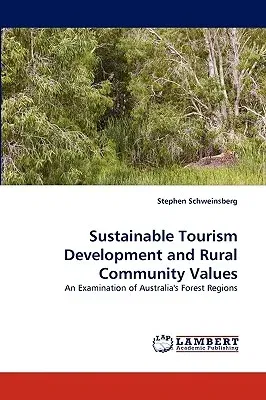Stephen Schweinsberg
(Author)Sustainable Tourism Development and Rural Community ValuesPaperback, 2 October 2009

Qty
1
Turbo
Ships in 2 - 3 days
In Stock
Free Delivery
Cash on Delivery
15 Days
Free Returns
Secure Checkout
Print Length
320 pages
Language
English
Publisher
LAP Lambert Academic Publishing
Date Published
2 Oct 2009
ISBN-10
3838318242
ISBN-13
9783838318240
Description
Product Details
Author:
Book Format:
Paperback
Country of Origin:
US
Date Published:
2 October 2009
Dimensions:
22.86 x
15.24 x
1.83 cm
ISBN-10:
3838318242
ISBN-13:
9783838318240
Language:
English
Location:
Saarbrucken
Pages:
320
Publisher:
Weight:
471.74 gm

